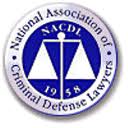July 3, 2012 at 3:31 pm
· Filed under Career Resources, Events and Announcements, Legal Education
Equal Justice Works’s live webinars provide a comprehensive overview of the debt relief options available for students and graduates – including Public Service Loan Forgiveness and Income-Based Repayment – and provide viewers with the opportunity to ask questions. Click here to view a schedule of our webinars and to register for an upcoming session.
Current sessions include:
- How to Pay Your Bills AND Your Student Loans: Utilizing Income-Based Repayment – Thursday, July 12, 3-4 p.m. EDT: Saddled with high student debt? This webinar reviews Income-Based Repayment, a powerful provision of the College Cost Reduction and Access Act that allows anyone with high debt relative to their income to reduce their federal student loan payments. This interactive webinar will teach you:
- How to understand your federal loans
- How Income-Based Repayment works and if it is right for you
- How to sign up for Income-Based Repayment
- Get Your Educational Loans Forgiven: Public Service Loan Forgiveness – Thursday, July 26, 3-4 p.m. EDT For recent graduates with jobs in government or at a nonprofit, this webinar explains how to make sure you immediately begin fulfilling requirements to qualify for Public Service Loan Forgiveness so that your educational debt will be forgiven as soon as possible. You will learn about:
- The importance of having the right kind of Federal Loans
- What you need to do to qualify for Public Service Loan Forgiveness
- How long it will take to have your educational debt forgiven
Permalink
July 3, 2012 at 12:00 pm
· Filed under Public Interest Jobs
 The Project Attorney is a one-year grant funded position that will assist NACDL’s Resource Counsel in developing and administering support services for criminal practitioners in a variety of practice settings throughout the United States, with an emphasis on post-conviction innocence claims. The Project Attorney will gather resources and further develop and update NACDL’s existing resources to provide technical and substantive assistance on all aspects of post-conviction criminal defense practice. The Project Attorney will also assist in notifying parties, including defendants and defense counsel in cases of possible wrongful conviction based on unreliable forensic evidence. The Project Attorney will provide resources on challenging the reliability of non-DNA forensic evidence to enable post-conviction lawyers to effectively identify and provide high quality representation in cases of wrongful conviction.
The Project Attorney is a one-year grant funded position that will assist NACDL’s Resource Counsel in developing and administering support services for criminal practitioners in a variety of practice settings throughout the United States, with an emphasis on post-conviction innocence claims. The Project Attorney will gather resources and further develop and update NACDL’s existing resources to provide technical and substantive assistance on all aspects of post-conviction criminal defense practice. The Project Attorney will also assist in notifying parties, including defendants and defense counsel in cases of possible wrongful conviction based on unreliable forensic evidence. The Project Attorney will provide resources on challenging the reliability of non-DNA forensic evidence to enable post-conviction lawyers to effectively identify and provide high quality representation in cases of wrongful conviction.
The deadline to apply is 7/27 – find out how at PSLawNet!
Permalink
July 3, 2012 at 9:20 am
· Filed under The Legal Industry and Economy
By: Maria Hibbard (with many thanks to legal-aid-funding-guru Steve Grumm!)
The news for civil legal aid funding is rarely positive lately – but, if you’re like me, you may be wondering exactly where these cuts are coming from. The answer is a complicated one dependent on many factors – because there is no civil “right to counsel” mandate (although some smaller-scale “Civil Gideon” programs are on the rise), civil legal aid funding comes from a number of sources, all of which work together to create any particular legal aid organization’s funding. A quick primer on the primary civil legal aid funding sources:
- Legal Services Corporation (LSC) – The largest institutional funder of civil legal aid programs is the Legal Services Corporation – LSC is a nonprofit entity chartered by the federal government in the mid-1970s to distribute federal grants to legal aid organizations – which themselves are independent nonprofits – which then provide legal help to individuals with incomes at or below 125% of the federal poverty level, or $28,813/year for a family of four. LSC funding is, in real dollar terms, at near historic lows. You can view an LSC funding history here.
- LSC Restrictions – Because LSC prohibits the organizations that use its funding from certain types of advocacy, like filing class actions or legislative lobbying, not all civil legal aid organizations take LSC funding. For example, Philadelphia Legal Assistance uses LSC funding, while Community Legal Services of Philadelphia receives its funding from other sources. These two organizations were once united, but changes to the federal regulations governing LSC-funded organizations in the mid-1990s resulted in PLA spinning itself off from CLS in a phenomenon that also played out in many other jurisdictions. PLA continued to receive federal dollars – and was thus subject to considerable restrictions on some of its advocacy – while CLS no longer took federal dollars from LSC. (Whew! Alphabet soup!)
- Interest on Lawyers Trust Accounts (IOLTA) – When a lawyer receives money from a client, that money is placed in a trust account separate from the lawyer’s own money until the work is completed. The IOLTA program takes the interest from these accounts and distributes it to legal aid programs foundations. Such use of IOLTA funding is mandatory in the majority of U.S. jurisdictions – and is the third greatest source of civil legal aid funding behind LSC and state and local funding. With interest rates having remained at extraordinarily low levels over the past few years, IOLTA funding has been decimated. Nationwide, revenue from trust account interest dropped 74% from $371 million in 2007 to $95 million in 2010.
- State and local government funding – state /local funding for legal services organizations comes from state budget appropriations, fee surcharges, and property funds. We posted last week about how these budgets are volatile, however. Many states have considerably diminished their appropriations to legal aid providers (although New York State is a notable exception).
- Foundations and private lawyer and firm contributions – while much more difficult to measure, these contributions still contribute to a large portion of civil legal aid organizations’ budgets. Although not a direct financial contribution, pro bono attorney services also impact the ability of civil legal aid organizations to improve access to justice.
Understanding the multiple ways in which civil legal aid organizations are funded can help one understand the full extent of the justice gap – because there are no constants in funding, the amount of legal services that are available is unpredictable. This 2007 report estimates that for every person that an organization with LSC funding helped, one was turned away. Many organizations have more recently estimated that they must turn away much higher percentages of would-be clients because of funding shortages. Obviously, advocates for the support of civil legal aid services are constantly needed.
It’s definitely not fun for public interest minded law students to read about how bad funding is now – especially because these numbers are bound to have an effect on the number of jobs. But it’s best to be informed – you can read my colleague Steve Grumm’s weekly blog post on the funding and job developments in the public interest world on our blog every Friday.
Permalink
July 2, 2012 at 12:00 pm
· Filed under Uncategorized
 DHS components work collectively to prevent terrorism, secure borders, enforce and administer immigration laws, safeguard cyberspace and ensure resilience to disasters. The vitality and magnitude of this mission is achieved by a diverse workforce spanning hundreds of occupations.
DHS components work collectively to prevent terrorism, secure borders, enforce and administer immigration laws, safeguard cyberspace and ensure resilience to disasters. The vitality and magnitude of this mission is achieved by a diverse workforce spanning hundreds of occupations.
The Office of the Chief Counsel provides legal advice to, and legal representation of, U.S. Customs and Border Protection (CBP) officials in matters relating to the activities and functions of CBP. The Office is also responsible for reviewing proposed actions to ensure compliance with legal requirements, preparing formal legal opinions, preparing or reviewing responses in all court actions, civil or criminal, involving CBP, and developing, implementing, and evaluating nationwide programs, policies, and procedures within its functional areas. The Office of the Chief Counsel has both a Headquarters and a field structure. The Headquarters office is located in Washington, D.C. and its activities are divided broadly into three functional areas: Ethics, Labor and Employment; Enforcement; and Trade and Finance, under the supervision of Associate Chief Counsels. The field structure consists of Associate and Assistant Chief Counsels located in major cities across the United States who advise CBP field managers in their geographic areas.
This position is in the Office of Chief Counsel – CBP, and will be under the supervision of the Associate Chief Counsel, Enforcement. The selectee provides legal services concerning the laws that relate to CBP enforcement functions with special emphasis on Customs and Immigration Law. The selectee researches the law and prepares legal memoranda, litigation reports, affidavits and other documents in civil and/or criminal actions involving CBP; provides current information to the field concerning significant changes in law and procedure; advises policy makers and coordinates legal issues with other government components; and prepares or reviews CBP regulations, policies and other materials.
The deadline to apply is 7/16 – find out how at PSLawNet!
Permalink




